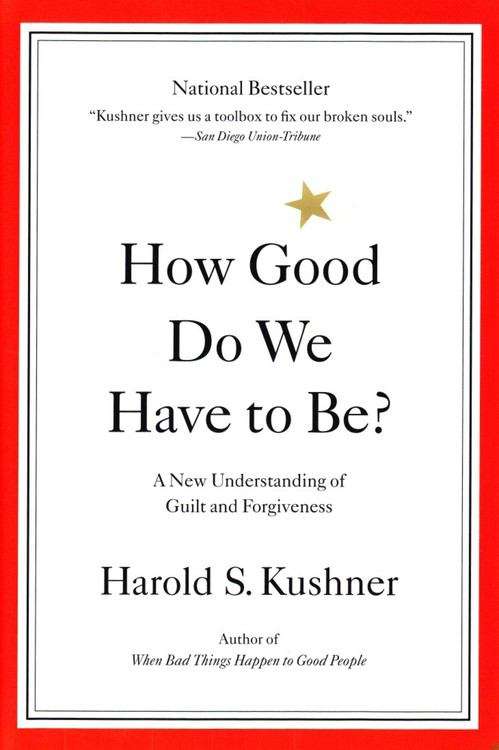How Good Do We Have to Be? A New Understanding of Guilt and Forgiveness
By:
Sign Up Now!
Already a Member? Log In
You must be logged into Bookshare to access this title.
Learn about membership options,
or view our freely available titles.
- Synopsis
- Here is the introduction to the book: INTRODUCTION I HAVE BEEN THINKING about the ideas expressed in this book for a long time. Even as a child, I was bothered by the biblical story of the Garden of Eden. A God who punished people so severely for breaking one arbitrary rule was not a God I wanted to believe in, especially since the story seemed to suggest that Adam and Eve had no knowledge of what good and bad meant before they broke the rule. As I grew older, I encountered so many instances of people doing what they thought God had done in the Bible, rejecting someone for making one mistake, for not being perfect. When I was rabbi of a congregation in suburban Boston and members of my synagogue would share their problems with me, I would repeatedly hear of children angry at their parents, parents disappointed in their children, husbands and wives upset with each other, brothers not inviting brothers to a wedding because of an argument that had taken place years earlier. The pattern tended to be the same: somebody did something wrong and someone else responded by withdrawing love, sometimes by withdrawing all contact. And the retaliator felt justified in doing that because, after all, hadn't God done the same thing in the Garden of Eden? I often felt frustrated at the inability of my religious perspective to heal that breach. Fifteen years ago, responding to a personal tragedy, I wrote a book called When Bad Things Happen to Good People. Its message was simple but radical: when something bad happens to you, it is not a case of God punishing you because you deserve it. God is on your side, not on the side of the illness or the injury. This book can be seen as an extension of that earlier one. Its message is equally simple and equally radical: God does not stop loving us every time we do something wrong, and neither should we stop loving ourselves and each other for being less than perfect. If religious teachers tell us otherwise, that is bad religion. If our parents responded to our misbehavior by withdrawing their love, that was a bad response by people who may otherwise have been good parents. I hope that our sense of self-worth, our relationships to our parents, our children, our mates, our siblings, and friends will improve once we learn the lesson that one mistake need not lead to rejection and banishment. And I hope that this book will guide you to gaining that blessing.
- Copyright:
- 1996
Book Details
- Book Quality:
- Excellent
- Book Size:
- 182 Pages
- ISBN-13:
- 9780316519335
- Publisher:
- N/A
- Date of Addition:
- 05/23/02
- Copyrighted By:
- Harold S. Kushner
- Adult content:
- No
- Language:
- English
- Has Image Descriptions:
- No
- Categories:
- Nonfiction, Self-Help, Religion and Spirituality, Psychology, Philosophy
- Submitted By:
- Richard Turner
- Proofread By:
- Dr. Kenneth Cross
- Usage Restrictions:
- This is a copyrighted book.
Reviews
Other Books
- by Harold S. Kushner
- in Nonfiction
- in Self-Help
- in Religion and Spirituality
- in Psychology
- in Philosophy
